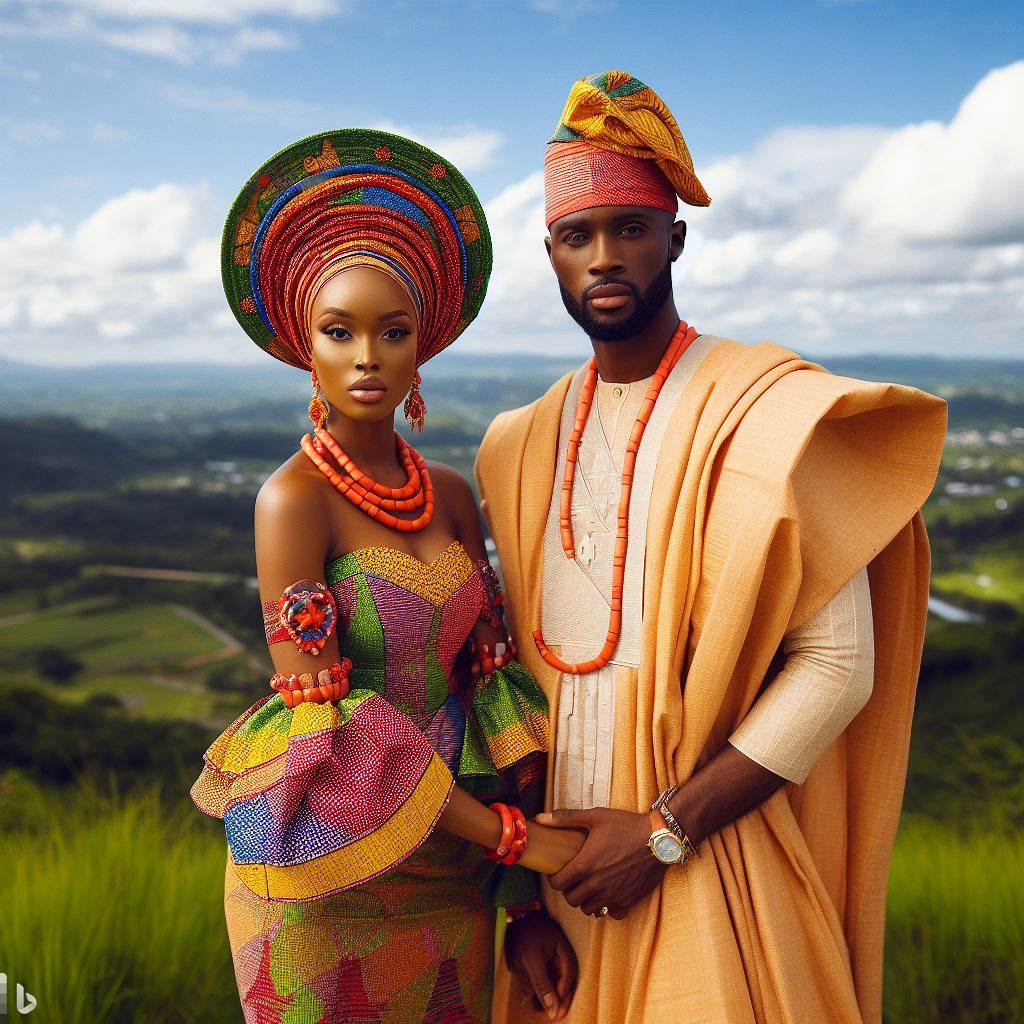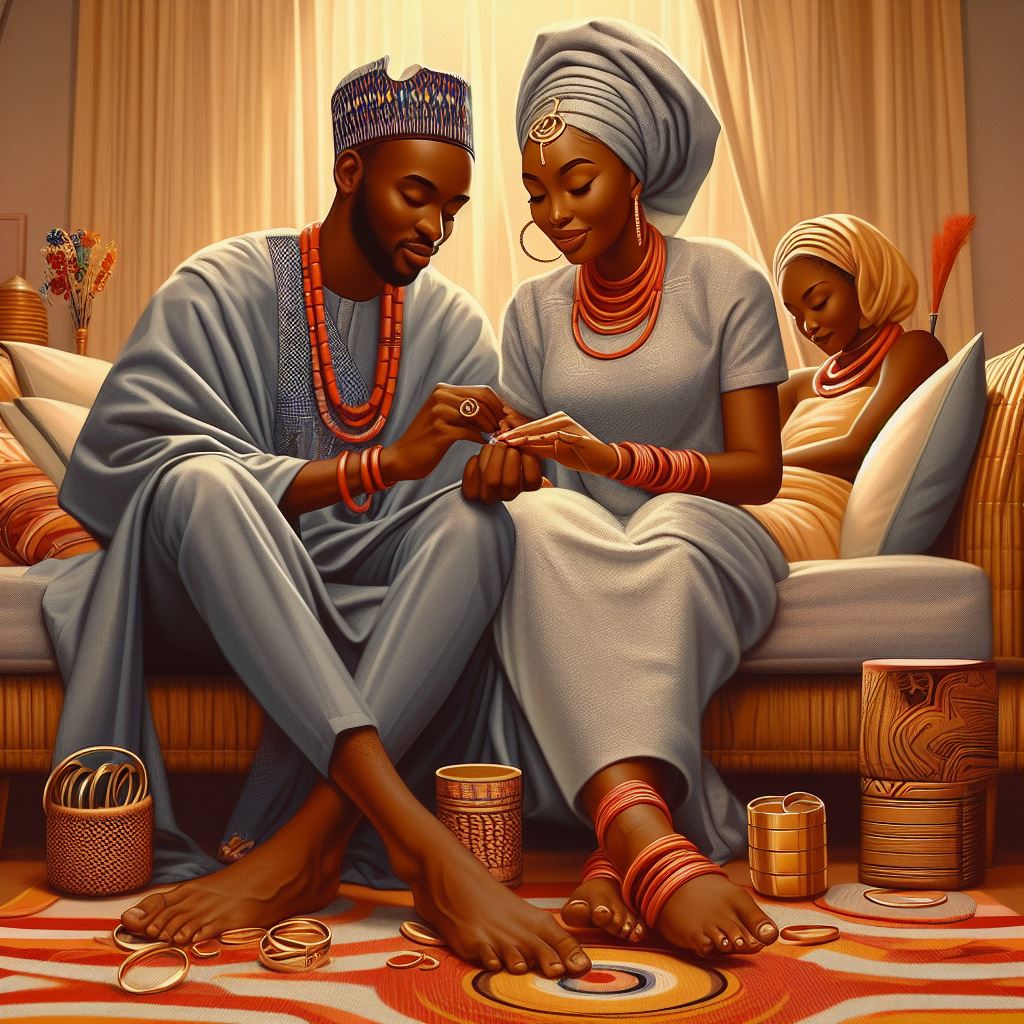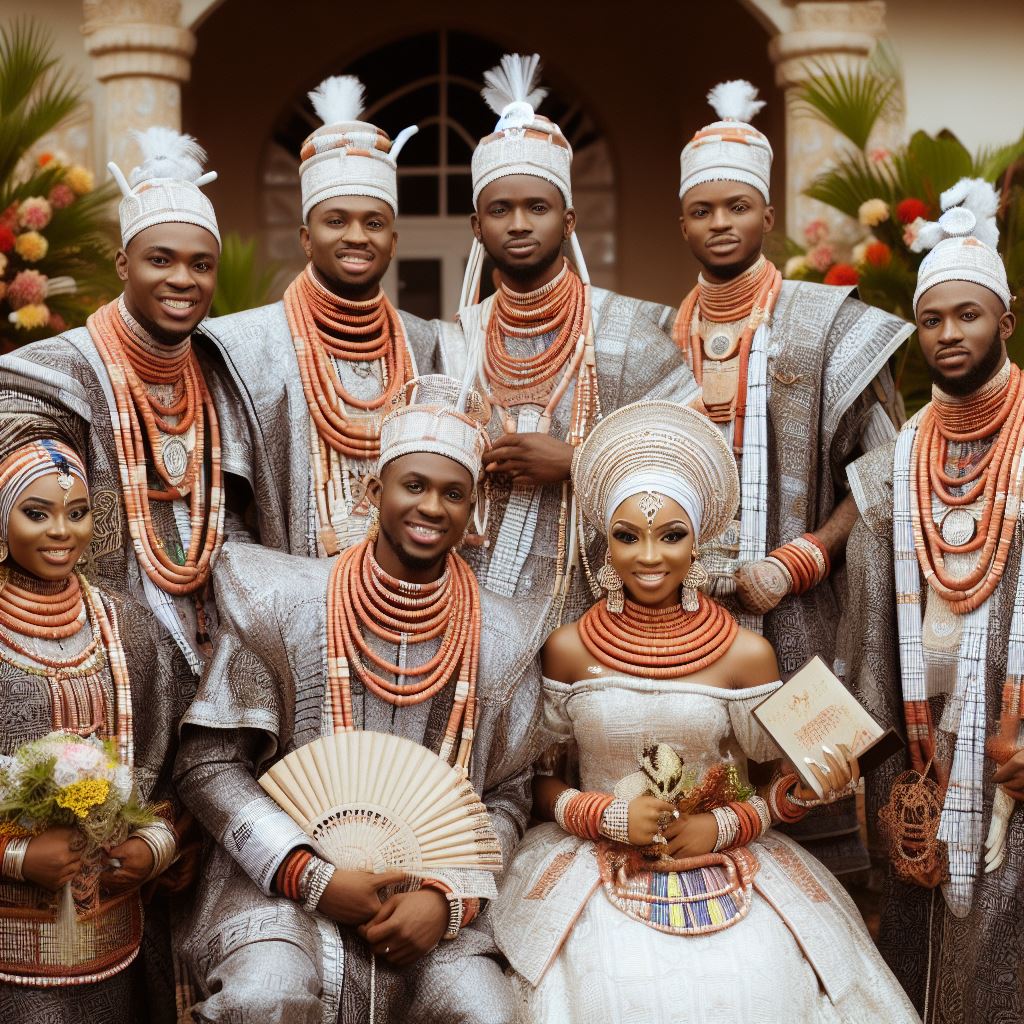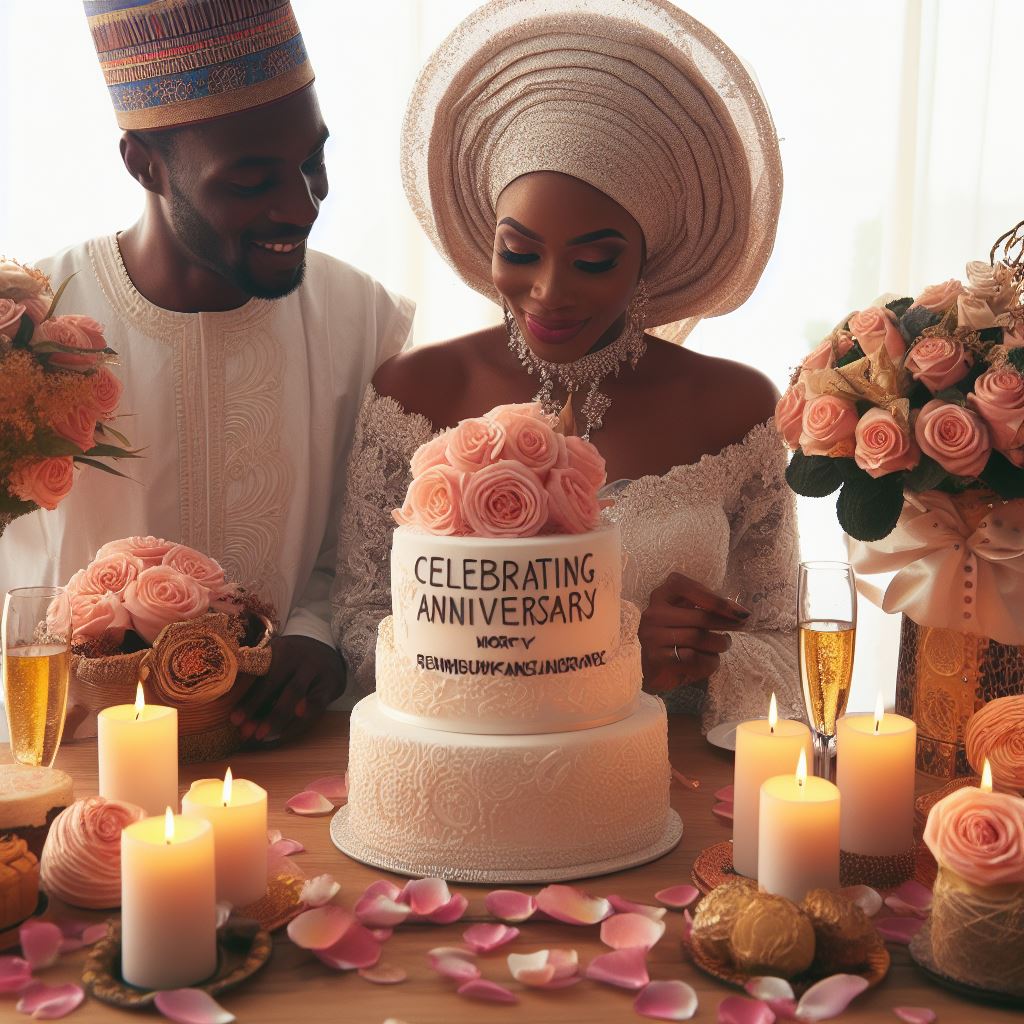Introduction
Significance of marriage in Nigerian culture
Marriage is a significant institution in Nigerian culture, with traditional and civil marriages being the two forms commonly practiced.
Purpose of the blog post
This blog post aims to explore the differences between traditional and civil marriages in Nigeria and the importance they hold in the society.
Introduction to Traditional vs. Civil Marriages:
In Nigeria, the choice between traditional and civil marriages is a significant decision, reflecting cultural diversity.
The Significance of Marriage in Nigerian Culture:
- Marriage is a cornerstone of Nigerian society, symbolizing unity, family, and tradition.
- It merges two lives, communities, and often, distinct marriage customs, making it a vital part of Nigerian culture.
Purpose of the Blog Post:
In this blog post, we’ll:
- Explore the key differences between traditional and civil marriages.
- Shed light on the legal implications, cultural aspects, and considerations for making the right choice.
Definition and Explanation of Traditional Marriage
Traditional marriage is a union between a man and a woman that follows cultural customs and practices.
Definition of traditional marriage and its features
- Commitment: Traditional marriage is based on the lifelong commitment between the couple.
- Gender Roles: It adheres to traditional gender roles, where men are seen as providers and protectors, while women are nurturers and homemakers.
- Family Involvement: Traditional marriage places great importance on the involvement and blessings of both the bride and groom’s families.
- Cultural Significance: It carries cultural significance as it preserves customs and traditions that have been passed down through generations.
Cultural Importance and Significance of Traditional Marriage
Traditional marriage plays a central role in cultural identity and heritage. It connects individuals to their roots and reinforces social ties within the community.
It is a way of showcasing cultural practices, rituals, and traditions, symbolizing unity and belonging.
Explaining the Rituals, Customs, and Traditions of Traditional Nigerian Weddings
- Introduction and Engagement: The groom visits the bride’s family with his own family to formally introduce themselves and ask for her hand in marriage. This step involves presenting gifts and seeking blessings.
- Dowry or Bride Price: The groom’s family offers gifts, usually in the form of money or goods, to the bride’s family as a symbol of appreciation and commitment.
- Traditional Attire: The couple and their families dress in traditional attire, reflecting their cultural heritage. This adds vibrancy and color to the ceremony.
- Traditional Ceremonies: Various ceremonies such as the “Igba Nkwu” are conducted, involving prayers, blessings, and cultural performances. These ceremonies are meant to bring fortune and happiness to the couple.
Role of Families, Community, and Religion in Traditional Marriages
- Families: Families play a significant role in traditional marriages as they provide support, guidance, and blessings to the couple. They also help in organizing and financing the wedding ceremonies.
- Community: Traditional marriages are not just about the bride and groom but also involve the active participation of the community.
It is a celebration that brings everyone together, fostering a sense of unity and belonging. - Religion: Religion often plays a crucial role in traditional marriages. It influences the customs, rituals, and ceremonies performed during the wedding.
Religious leaders conduct prayers and bless the union, emphasizing the spiritual aspect of marriage.
In summary, traditional marriage is deeply rooted in culture, customs, and community. It encompasses a range of rituals, customs, and traditions that highlight the importance of commitment, family, and heritage.
It is a celebration of love and unity that brings people together and keeps cultural traditions alive.
Read: Igbo Marriage Ceremonies: Messages and Significance
Definition and Explanation of Civil Marriage
In this blog section, we will discuss civil marriage, its features, and how it is legally recognized by the Nigerian government.
We will also delve into the process of obtaining a civil marriage license and the importance of documentation and legal requirements in civil marriages.
Definition of civil marriage and its features
- Civil marriage refers to a legal union between two individuals, typically without any religious affiliation.
- It is a secular and formalized institution that grants legal rights and obligations to the married couple.
- Unlike traditional marriage, civil marriage does not involve any religious ceremonies or rituals.
Recognition of Civil Marriages by the Nigerian Government
- In Nigeria, civil marriages are legally recognized and governed by the Marriage Act.
- This act provides the legal framework for civil marriages and outlines the rights and responsibilities of spouses.
- To be officially recognized, civil marriages must comply with the requirements set forth in the Marriage Act.
Process of Obtaining a Civil Marriage License
- The first step to obtaining a civil marriage license is to visit the marriage registry in the district where either of the parties resides.
- Both parties must present valid identification documents such as passports or national identity cards.
- They are also required to provide proof of age, typically in the form of birth certificates or sworn affidavits.
- Additionally, each party must provide a declaration of their intention to marry, which includes their personal details and marital status.
- Depending on the specific requirements of the jurisdiction, couples may also need to undergo pre-marital counseling or medical examinations.
- Once all the necessary documents are submitted and verified, the couple will be issued a marriage license.
Role of Documentation and Legal Requirements in Civil Marriages
- Documentation plays a crucial role in civil marriages as it establishes the legality and validity of the union.
- Properly completed forms, certificates, and affidavits ensure that the marriage is recognized by the government and provides legal protection for both spouses.
- Legal requirements such as age, mental capacity, and previous marital status are important in determining the eligibility to enter into a civil marriage.
- By adhering to these requirements, the government ensures that marriages are consensual and based on the free will of the individuals involved.
In short, civil marriage is a legal institution recognized by the Nigerian government. It is a secular and formalized union that grants legal rights and responsibilities to the married couple.
By following the process of obtaining a civil marriage license and fulfilling the necessary documentation and legal requirements, couples can ensure the validity and legality of their union.
Whether one opts for a traditional or civil marriage, it is essential to understand the legal implications and requirements associated with each form.
Read: Deciphering Common Yoruba Marriage Blessings and Wishes

Differences Between Traditional and Civil Marriage
When it comes to the institution of marriage, there are two primary forms that individuals can choose from: traditional marriage and civil marriage.
While both forms serve the purpose of legally binding two individuals together, there are key differences between the two.
In this section, we will compare and contrast the key differences between traditional and civil marriages, discuss their cultural and legal implications, highlight the role of social expectations and norms in deciding between the two, and address issues such as cost, time commitment, and level of formality.
Compare and contrast the key differences between the two forms of marriage
- A traditional marriage is often rooted in cultural or religious customs and practices that have been passed down through generations.
- It typically involves a ceremony conducted by a religious figure or cultural leader, with specific rituals and traditions that vary across different cultures and religions.
- In contrast, a civil marriage is a legally recognized union that is officiated by a justice of the peace or other legal authority. It does not involve any religious or cultural ceremonies or customs.
The cultural and legal implications of each form
One key difference between traditional and civil marriages lies in the legal implications.
- While both forms provide legal recognition of the union, civil marriages are recognized and protected by the state, offering the couple legal rights and benefits such as inheritance, tax benefits, and access to healthcare.
- Traditional marriages, on the other hand, may have varying degrees of legal recognition depending on the jurisdiction, and often rely on religious or cultural customs for legitimacy.
- Culturally, traditional marriages often carry significant symbolic meaning and reflect a sense of identity and belonging within a community.
- They can serve as a way to preserve cultural heritage and traditions, and act as a social marker of adulthood and commitment.
- Civil marriages, on the other hand, are often seen as a more secular form of union, devoid of any specific cultural or religious affiliation.
- This can be appealing to individuals who prioritize personal autonomy and equal treatment under the law.
Role of social expectations and norms in deciding between traditional and civil marriages
- Social expectations and norms also play a role in the decision between traditional and civil marriages.
- In some cultures, there may be strong societal pressure to conform to traditional marriage norms, with individuals expected to marry within their community and follow established customs.
- On the other hand, civil marriages offer individuals more flexibility and freedom to choose a partner outside of their cultural or religious background, which can be seen as a way to challenge traditional social norms and expectations.
Issues such as cost, time commitment, and level of formality in both forms of marriage
- When it comes to practical considerations, traditional marriages tend to require more time, effort, and financial investment.
- The planning and execution of a traditional wedding ceremony can be a complex and costly endeavor, involving various expenses such as venue rental, catering, and attire.
- Civil marriages, on the other hand, are often simpler and more affordable, with minimal requirements and paperwork involved.
- In terms of formality, traditional marriages are often perceived as more elaborate and formal, with a focus on rituals, ceremonies, and customs.
- Civil marriages, on the other hand, are typically more informal and straightforward, focusing primarily on the legal aspects of the union.
In general, the choice between traditional and civil marriage ultimately depends on personal preferences, cultural and religious beliefs, and the legal implications one seeks from the institution.
While traditional marriages offer a deeper sense of cultural and symbolic significance, civil marriages provide legal rights and benefits without the need for religious or cultural affiliations.
Understanding the key differences between the two forms can help individuals make informed decisions when it comes to their own union.
Read: Crafting the Perfect Marriage Message for Your Spouse
Considerations for Choosing the Right Form of Marriage
Important factors to consider when deciding between traditional and civil marriages
- When deciding between traditional and civil marriages, several important factors need to be considered.
- One crucial consideration is individuals’ religious beliefs and preferences.
- Modernization and globalization have had a significant impact on marriage choices.
- Personal values, societal expectations, and legal implications also play a vital role in decision-making.
Religious Beliefs and Preferences
- For many couples, their religious beliefs and preferences are fundamental when choosing the form of marriage.
- Traditional marriage ceremonies often align with specific religious rituals, customs, and traditions.
- These ceremonies may take place in a religious institution and be officiated by a religious leader.
- On the other hand, civil marriages are often secular and non-religious, focusing solely on legal recognition.
- Couples who prioritize their religious beliefs may prefer a traditional marriage to honor their faith.
Impact of Modernization and Globalization
- Modernization and globalization have changed societal norms and values, including marriage customs.
- In some cultures, traditional marriages have been influenced by external influences, adopting elements from other cultures.
- These changes have led to a broader range of marriage options, accommodating diverse cultural backgrounds.
- Civil marriages have gained popularity due to their simplicity, convenience, and compatibility with modern lifestyles.
- For couples with multicultural backgrounds or those seeking a non-traditional approach, civil marriage can be appealing.
Personal Values and Societal Expectations
- Personal values and societal expectations can significantly impact the choice between traditional and civil marriages.
- Some individuals place great importance on adhering to established societal expectations and traditions.
- They may feel obliged to have a traditional marriage to maintain family customs and fulfill their societal roles.
- On the other hand, those who prioritize personal values and freedom may opt for a civil marriage.
- Choosing a civil marriage allows individuals to focus on their own desires rather than societal pressures.
Legal Implications
- Understanding the legal consequences of different forms of marriage is crucial in making an informed decision.
- In traditional marriages, the legal aspects are often intertwined with religious and cultural practices.
- In contrast, civil marriages are recognized solely from a legal perspective, providing specific rights and benefits.
- Legal implications include financial matters, inheritance rights, taxation, and access to healthcare and social security benefits.
- Couples need to consider these implications and determine which form of marriage best suits their needs.
Generally, choosing between traditional and civil marriages requires careful consideration of various factors.
Religious beliefs, modernization, personal values, societal expectations, and legal implications all play significant roles.
Ultimately, couples must weigh these considerations and make a decision that aligns with their unique circumstances and preferences.
Read: Gifts with Marriage Messages: Nigerian Trends to Watch
Conclusion
Summary of the main points discussed in the blog post
In the end, understanding the differences between traditional and civil marriage is crucial in Nigeria.
Traditional marriages are rooted in customs and cultural practices, while civil marriages are legally recognized by the government.
Importance of understanding the differences between traditional and civil marriage in Nigeria
It is important for individuals to make an informed decision based on their unique circumstances and preferences.
While traditional marriages may offer a strong connection to cultural heritage, civil marriages provide legal rights and protections.
Encourage readers to make an informed decision based on their unique circumstances and preferences
By understanding the pros and cons of each form of marriage, individuals can choose the one that aligns best with their values and goals.
Closing thoughts on the significance of marriage in Nigerian society
- Marriage holds great significance in Nigerian society, as it symbolizes commitment, family, and societal cohesion. It is a deeply rooted tradition that is respected and celebrated.
- Ultimately, whether one chooses a traditional or civil marriage, the importance lies in the understanding, respect, and commitment shared between partners.
- Marriage is a lifelong journey that should be approached with care, love, and consideration for one another.




